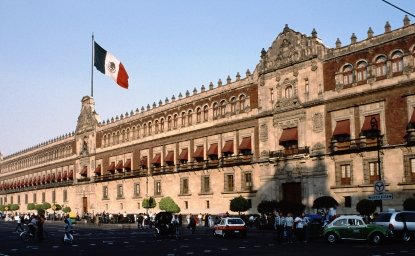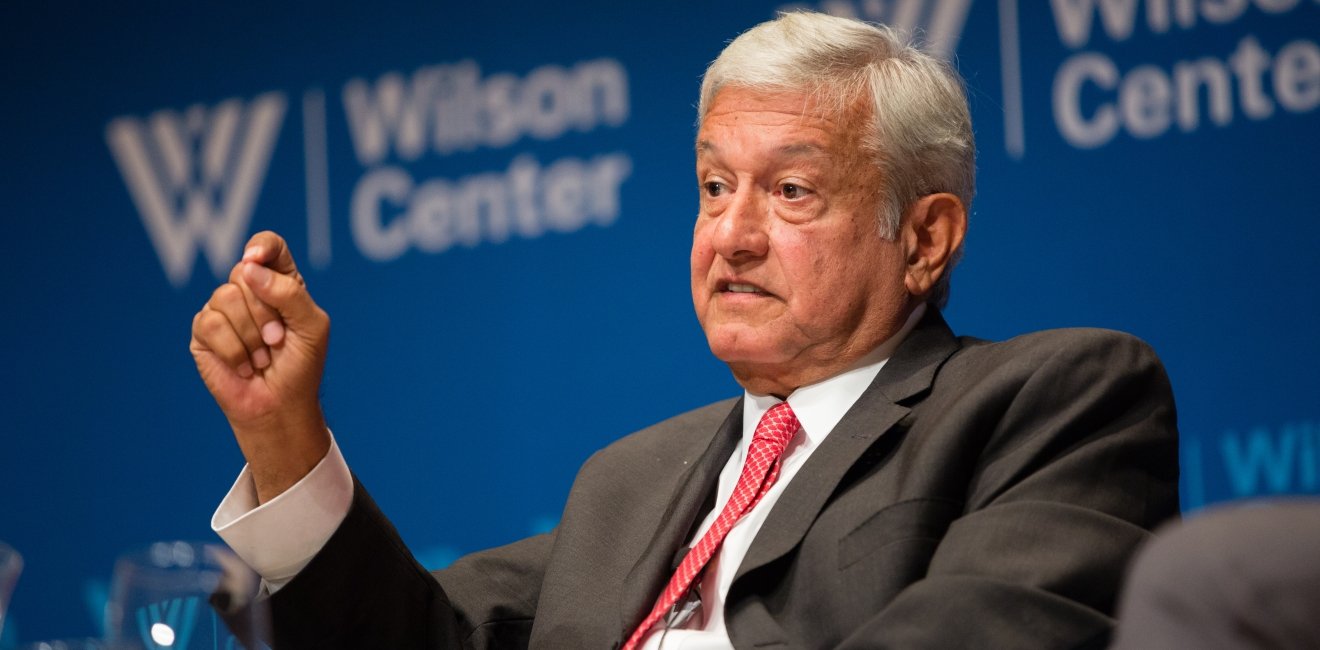The relationship between President-elect Andrés Manuel López Obrador, or AMLO, and the business community has long been a tense one. Many of the leaders of Mexico’s largest businesses sounded the alarm, endorsing alternate candidates and warning of the dire consequences of an AMLO presidency for the Mexican economy. Yet in the run up to and then in the immediate wake of the elections as his victory became inevitable, the value of the peso strengthened and Mexican stocks rallied. After months of Mexico skepticism based on NAFTA and political risk, have the markets had a change of heart and become AMLOvers, as his enthusiastic supporters are known?
Yes and no. He has been effective, at least for now, in signaling to investors foreign and domestic that many of their worst fears are overblown. In the face of NAFTA uncertainty, he has changed from critic to supporter, going so far as naming a chief negotiator and potential trade minister that are committed to working with the current Mexican team in an attempt to finish negotiations even before López Obrador takes office on December 1. His team has voiced support for virtually all the positions of the current Mexican negotiators, only breaking with them on the issue of enshrining salary increases for Mexican workers in the trade agreement, which the Peña Nieto government has rejected.
AMLO’s likely finance minister, Carlos Urzúa, held a conference call with investors on Monday to assure them the incoming administration would respect the autonomy of the central bank and maintain fiscal discipline, echoing statements made by the President-elect himself in his victory speeches on the night of the election. His energy advisors have similarly sought to calm the nerves of oil and gas companies, which have begun making big investments in Mexico since the passage of its 2013 constitutional reform allowing foreign and domestic private participation in exploration and production. AMLO’s economic advisors have promised to respect already issued contracts if no evidence of corruption in their issuance is uncovered. More generally, AMLO has promised to respect the rule of law as he implements his reform agenda.
What all these statements have earned AMLO is a window of opportunity. Currency traders holding short positions on the peso in anticipation of a post-election depreciation began to dump their shorts, realizing that a fair amount of AMLO-uncertainty had already been priced into the value of the peso and in expectation that the President-elect would be making more market friendly signals in the coming weeks. The reprieve, though, is just that. Investors’ antennas are raised, poised to sell if AMLO begins to appear more like an aspiring autocrat or radical economic nationalist than a common-sense reformer. That would raise borrowing costs for his government and threaten economic growth.
No one has forgotten his promises to cancel Mexico City’s new airport, a mega-project already underway, with contracts signed and debt issued. Nor have they ignored the seeming contradictions between his support for free trade and his call for Mexico to grow all its own food. International analysts will be reading the tea leaves, asking whether AMLO will use his anti-corruption mandate to bury political opponents or to strengthen institutions. They will watch as his economic team begins working on next year’s budget for signals as to whether he will swell Mexico’s debt to pay for his promised increases in infrastructure and social spending. Will he follow through with plans to build oil refineries to avoid selling crude and importing gasoline and to freeze new oil exploration auctions, or will he instead reform PEMEX, the state-owned oil company, and invest in much more lucrative energy production projects, something the private sector has shown willingness to help finance?
AMLO has promised a peaceful revolution as significant as Mexican independence in 1810, its period of liberal reforms in the 1860s and the revolution in the early twentieth century. He aspires to greatness, to leave a legacy as a transformative figure that finally brings and end to corruption and inequality. For decades now, he has railed against the failures of neoliberal economics and what he sees as an oligarchic system designed to keep people like him out of power. Along the way, López Obrador has shown a distrust in institutions and and modern economic principles.
Ironically, he will need effective institutions to fulfill his central campaign promise of combating corruption and a well-functioning economy to generate the tax revenue needed to fund his proposed infrastructure and social spending designed to bring economic opportunity to those who have been left behind. Even if he does not like business elites and New York investors, he needs them to achieve his goals. To tame markets, AMLO must listen to them.
This article was originally published on the Mexico Institute's blog on Forbes.com.
Author


Mexico Institute
The Mexico Institute seeks to improve understanding, communication, and cooperation between Mexico and the United States by promoting original research, encouraging public discussion, and proposing policy options for enhancing the bilateral relationship. A binational Advisory Board, chaired by Luis Téllez and Earl Anthony Wayne, oversees the work of the Mexico Institute. Read more

Explore More
Browse Insights & Analysis
Mexico's 2018 Elections: A Historic Vote



